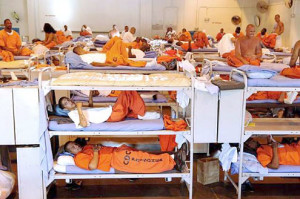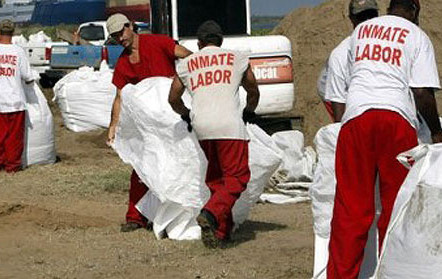Prison Reform Needed for Minority Youth

Prison Reform Needed for Minority Youth
By D.A. Barber
Prison reform needed for minority youth, according to several new reports, should be high priority for any public policy debate or legislative actions.
Talk of needed prison reform has recently become part of public discussion from some unlikely directions: Sen. Rand Paul (R-Ky.) introduced a bipartisan bill with Senate Judiciary Committee Chairman Patrick Leahy (D-Vt.) on Mar. 20 to allow judges more flexibility in sentencing crimes where mandatory minimum sentences are considered gratuitous. In particular, the Justice Safety Valve Act would relax mandatory sentences for minor drug offences (such as small amounts of marijuana) for minority youth who do not pose a threat to the public.
While the proposed bill would provide relatively small sentence reductions, prison reform needed for minority youth has a long way to go in terms of the policies and meaningful legislation.
The ACLU blames the “war on drugs” as the reason the U.S. remains the world’s largest jail, and it is no secret that minorty youth, especially blacks and Latinos, are disproportionately incarcerated — 1 in 15 black male adults and 1 in 36 Latino male adults is in prison, compared to 1 out of 106 white male adults for drugs. According to Human Rights Watch’s 23rd annual World Report 2013, “Whites, African Americans, and Latinos have comparable rates of drug use but are arrested and prosecuted for drug offenses at vastly different rates. African Americans are arrested for drug offenses, including possession, at three times the rate of white men.”

Prison reform needed for minority youth should be priority for public policy.
Photo Credit: policymic.org
More notably, a February 2013 Annie E. Casey Foundation report points out America also leads the industrialized world in incarcerating young people: Black youth are nearly five times more likely to be confined than whites, while the rate for Latino and American Indian youth is between two and three times. According to the report, most kids in lockup are not there for violent offenses, nearly 40 percent were locked up for drug possession, technical probation violations, and infractions that only minors commit, such as truancy, or underage drinking.
On March 11, 2013, the Inter-American Commission on Human Rights held a hearing on the Human Rights Situation of Children Deprived of Liberty with Adults in the United States. “In this era of mass incarceration, the racial disparities are staggering: one in four African-American children in the U.S. has grown up with a parent incarcerated,” noted the ACLU, which offered testimony at the hearing and called on the Commission (part of the Organization of American States) to investigate. Human Rights Watch, which also testified, recently completed a one year investigation with the ACLU into solitary confinement of youth in U.S. adult prisons, noting that in 2011, “more than 95,000 people under age 18 were held in adult prisons and jails.”
Meanwhile, a January 31, 2013, report from Global Research notes the “prison industry” — one of the fastest-growing industries in the U.S. — is profiting from growing incarceration rates where “a prison population of up to 2 million — mostly Black and Hispanic — are working for various industries for a pittance.” According to the report, the use of prison labor “has its roots in slavery,” and today “at least 37 states have legalized the contracting of prison labor by private corporations.”
Featured Photo Credit: thinkprogress.org
